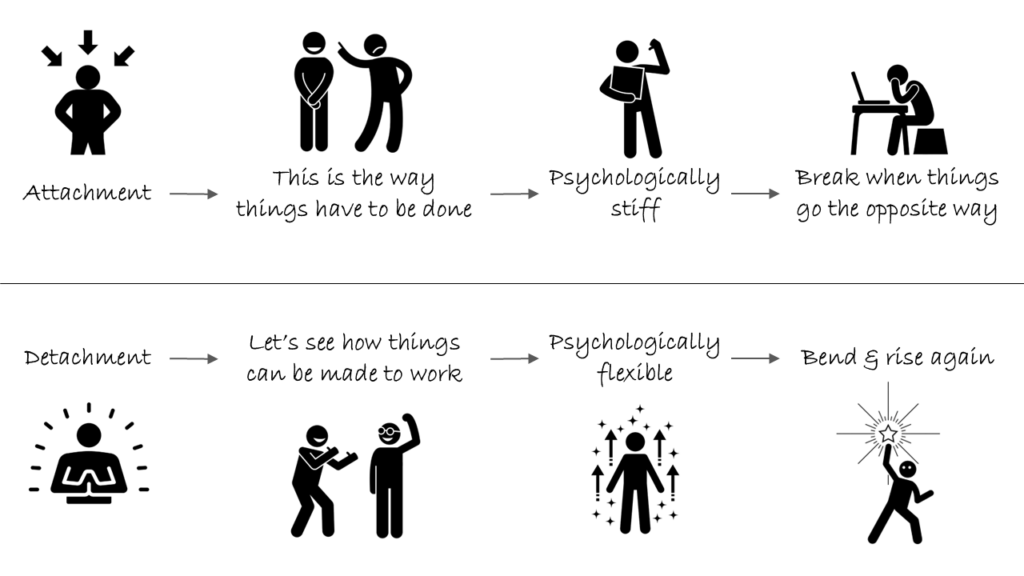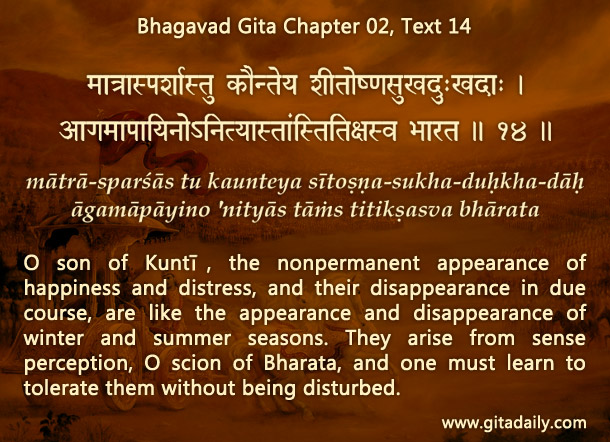
Attachments often make us rigid in ways that are curious, as we become inflexible about things that aren’t particularly important. For example, we might prefer a certain seat while traveling, and though such preferences bring comfort and predictability, becoming unreasonably attached to them can lead to unnecessary rigidity and agitation.
If someone genuinely needs what we prefer, such as a front seat in a car due to physical limitations, we may set aside our attachment because their need is more significant. However, flexibility becomes harder when important things don’t go our way.
When our intelligence is strong, we can understand the hierarchy of what truly matters. Most important is our own consciousness. If we let small setbacks agitate us excessively, we lose the capacity to respond positively. Detachment empowers us to care less for things that matter less and more for what truly matters—our consciousness.
The Bhagavad-Gita (2.13) emphasizes our spiritual identity and urges us to tolerate external, temporary ups and downs. By practicing detachment, we can stay flexible, maintain perspective, and find constructive solutions amid disruptions.
Summary:
- Attachment makes us rigid, causing undue agitation over trivial matters and losing perspective.
- Detachment enables us to care less about minor setbacks and focus on our consciousness, which is vital for constructive responses.
- By prioritizing consciousness, we gain the flexibility to navigate life’s challenges effectively.
Think it over:
- Reflect on a time when attachment caused unnecessary agitation over something trivial.
- Why is your consciousness the most important asset in your life?
- Consider an area in your life where practicing detachment could empower you to respond more constructively.
***
02.14 O son of Kuntī, the nonpermanent appearance of happiness and distress, and their disappearance in due course, are like the appearance and disappearance of winter and summer seasons. They arise from sense perception, O scion of Bharata, and one must learn to tolerate them without being disturbed.


Leave A Comment